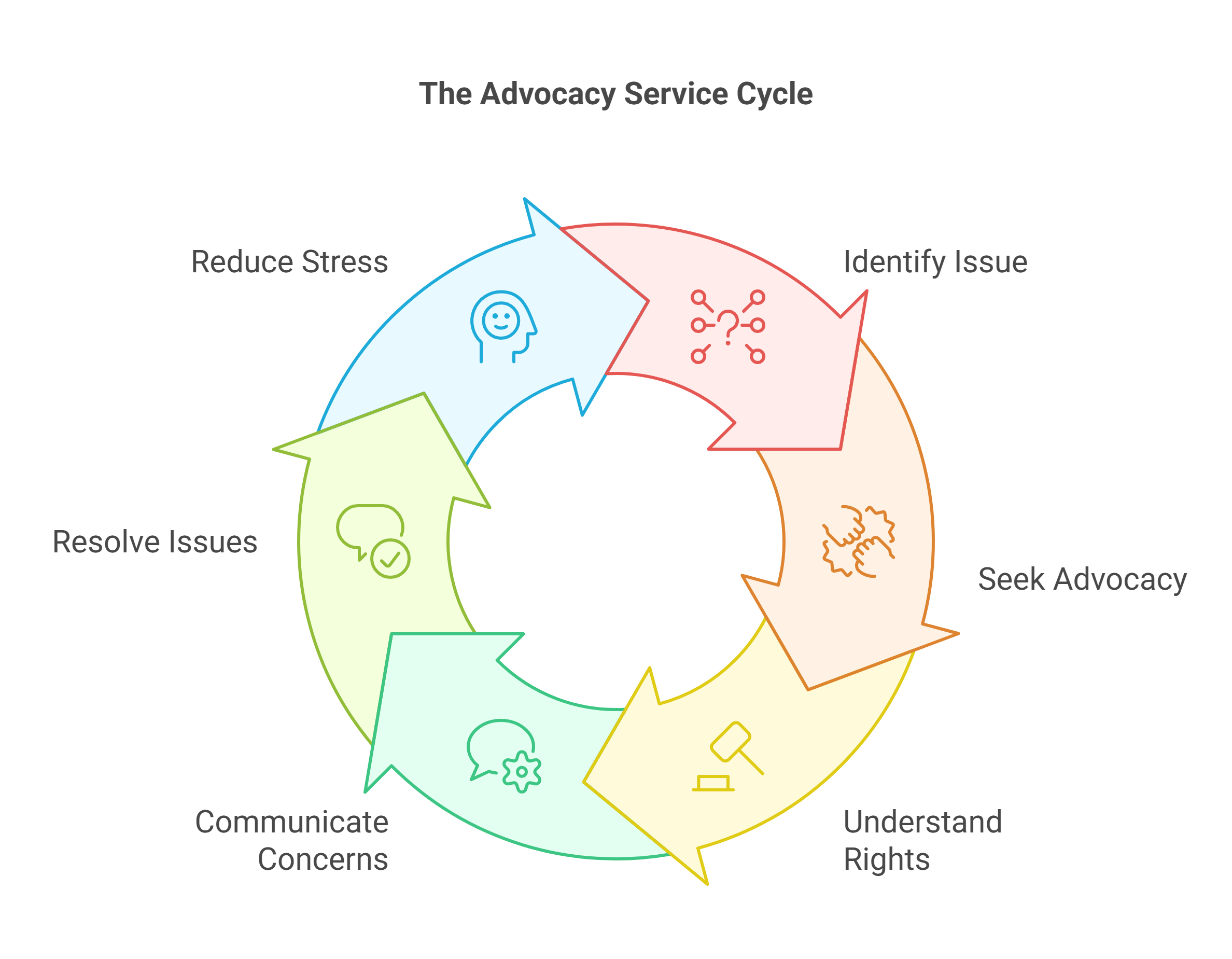What are Advocacy Services?
Advocacy services are forms of support offered to residents in aged care. These services help to speak up for the rights and needs of residents when they face challenges in care or have concerns about the quality of service. Advocacy services involve talking with the care team, family members, and sometimes government officials to make sure that every resident has a voice. These services are provided by skilled workers who are trained to listen carefully and to help residents express their wishes clearly.
Why are Advocacy Services Important?

Advocacy services give a clear way for residents to be heard. When a resident has a problem or is not treated fairly, advocacy services can help to bring the issue to the attention of those who can make changes. These services make it easier for residents to understand their rights and to ask for the care that they need. With the support of advocacy services, residents and their families feel more confident when discussing issues with care providers. This support reduces stress because there is a clear system in place to handle concerns and to work on improvements.
How do Advocacy Services Work?
Advocacy services start with a conversation. A resident, sometimes with the help of family members, meets with an advocate. The advocate listens to the concerns and writes down all the important details. This record of the conversation is used later to speak to care providers or government officials. The advocate helps to explain the resident's rights and makes suggestions on how to address the problem. These discussions may include topics such as changes in care, service delivery, or issues with fees. Once the discussion is complete, the advocate helps to follow up and track the progress of any changes that are promised by the care provider.
Who is Involved in Advocacy Services?
.png)
Advocacy services are offered by persons who have specific training in aged care support. Often, these advocates work in non-profit organizations that focus on the rights of older people. In many cases, the staff who work in advocacy services have personal experience or background in aged care. Family members may also become involved in the advocacy process. When everyone works together, the resident has a team that helps to make sure that their wishes are known and respected.
Benefits for Residents and Families
One clear benefit of advocacy services is that they help to remove confusion. When a resident does not know what steps to take, an advocate offers guidance on the next steps. Family members feel relieved when they know that a skilled person is helping to speak for their loved one. Advocacy services also work to build a record of all issues, which can be used to help resolve any disagreements later on. This record makes it easier to see what has been discussed and what actions have been taken by the care provider.
How to Access Advocacy Services
.png)
Residents and family members may find advocacy services by asking at the care facility or by looking online for community groups that support aged care rights. When a resident feels that their concerns are not being addressed, they should request an advocate to help. In many cases, care facilities have information available about how to reach advocacy services. The process usually starts with a simple phone call or a meeting with a care manager who can refer the matter to an advocate. This system is set up so that every resident has an easy path to receiving help.
Final Thoughts
Advocacy services in aged care are a valuable resource for residents who need help to speak up for themselves. These services provide a clear way for residents to share their views and to have their concerns taken seriously. With skilled advocates by their side, residents and family members can work together to achieve better care and fair treatment. Advocacy services make the aged care system more open and help to build trust between residents and care providers.

.png)
.png)




